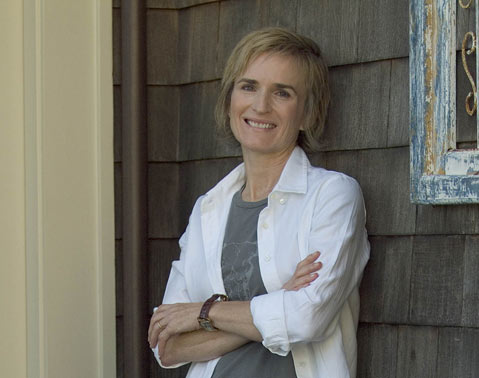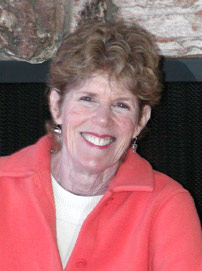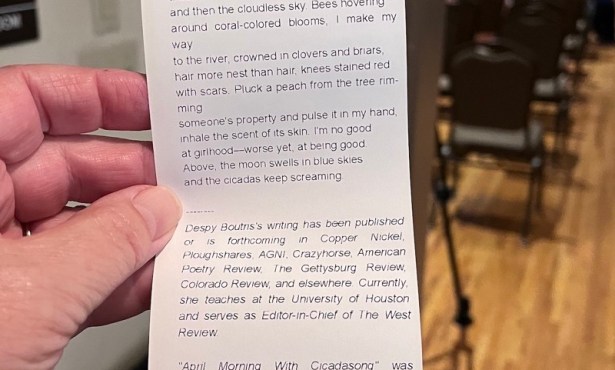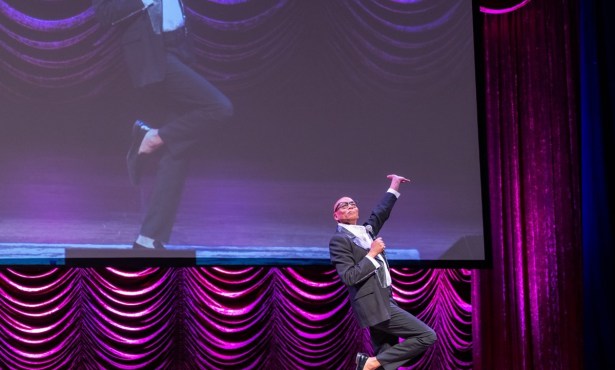The Poems of Lois Brown Klein and Rebecca Foust
Through the Fire

With summer comes fire: fires of raging destruction, and fires that ignite growth and renewal. The theme of fire came to me as I read two new books of poems: A Soldier’s Daughter (Turning Point, 2008) by Santa Barbara poet Lois Brown Klein and Dark Card (Texas Review Press, 2008) by Bay Area poet Rebecca Foust. Both writers have created life-affirming works of art from what could have been devastating circumstances.
In Klein’s opening poem, “The Real Story,” she writes of how she discovered, in researching the death of her father, that he didn’t simply disappear, as she had been told, but was burned in the barracks where he slept, sparked by another soldier’s cigarette.
:orange snake of flame:
presses down on everything
on men too sunk in sleep to rouse-
perhaps even then dreaming
of evenings by a campfire
as the heavy drift of smoke
sings in their lungs
sings them to sleep.
How ironic that a photo of Klein’s father, a doctor in civilian life, appeared on the cover of Look Magazine in March 1940, with an article describing his method of assisting childbirth. She writes: “:in a surgeon’s mask and cap / bent over a newborn’s waxy face. / His gloved hand squeezes / drops of silver nitrate / into the newly opened eye-a first in medicine:”

Rebecca Foust’s experience with the birth of her son was not so fortunate or newsworthy until she began writing poems about her child, who suffers from Asperger’s syndrome. We experience her fear and horror in the poem “First Born,” her boy premature at just a little over two pounds with the “Gordain-knotted” cord wrapped around his neck: “the doctor’s ohfuckingshit/when he lifted it, and it broke; :blood on his face, my face, the ceiling/the back wall.” Her grief spits with anger at the doctor in “Palace Eunuch”:
Don’t say you were trying to be kind,
you ball-less prick soft dick eunuch
cowardly coin-counting conservator.
You were practically pissing yourself
in your fear of malpractice,
you were shaking in your green paper booties.
Klein’s grief is different, meditative, despairing in “My Ninth Summer”:
I am thinking of my father,
his death growing in me
until it is so huge I cannot move.
I am curled around a pain
there is no name for in my world,
pray that my stillness
will keep it from being seen.
Foust wants her son to be seen for who he is, so she plays the “dark card of the idiot savant : he sees solutions the way you might breathe!/:It’s my ploy to exorcise their pitchforks and torches.” Her poems do just that, her fierceness coupled with great love and admiration for her son, an expert at cataloguing anything, or noting “variations in a symphony or committing to memory : the entire year’s schedule for the El-train.” Her last poem, “Like Dostoyevsky’s” (idiot saint), reads:
My boy loves who he is,
even if the world does not:
My illiterate heart
is a mother’s heart that beats
and breaks by rote, but I’m learning:
how he knits up the frayed cord-end
of every missed synapse,
into something coherent
that sings.
The cord unwound becomes a lifeline, and Klein announces “I am Ira Brown’s daughter,” her poems like silver nitrate that allows her to see herself in a new way. Both poets give us blistering reminders that one of poetry’s gifts is that of hope in a difficult world. Klein will be reading from her book at the downtown Borders on Wednesday, July 16, at 7 p.m. Foust will be a featured reader at the Santa Barbara Poetry Series, October 4 at 7 p.m.



